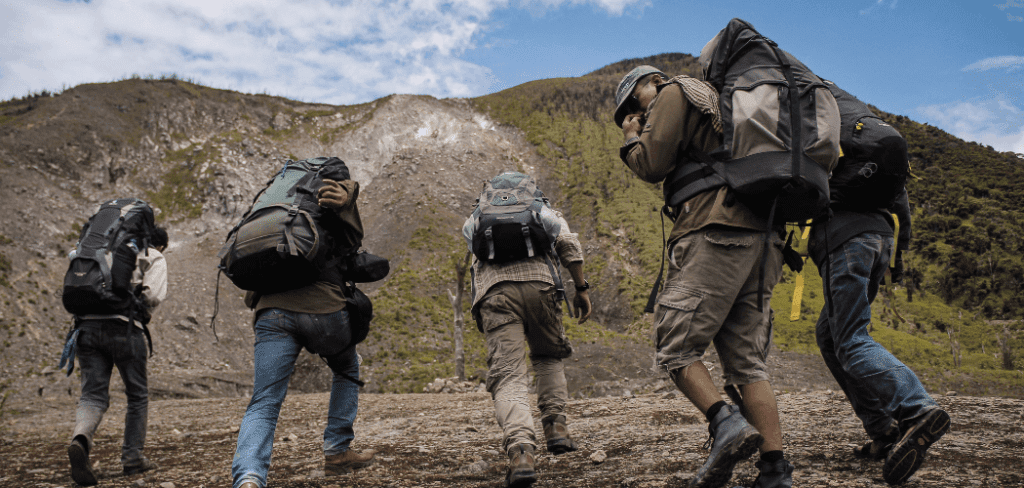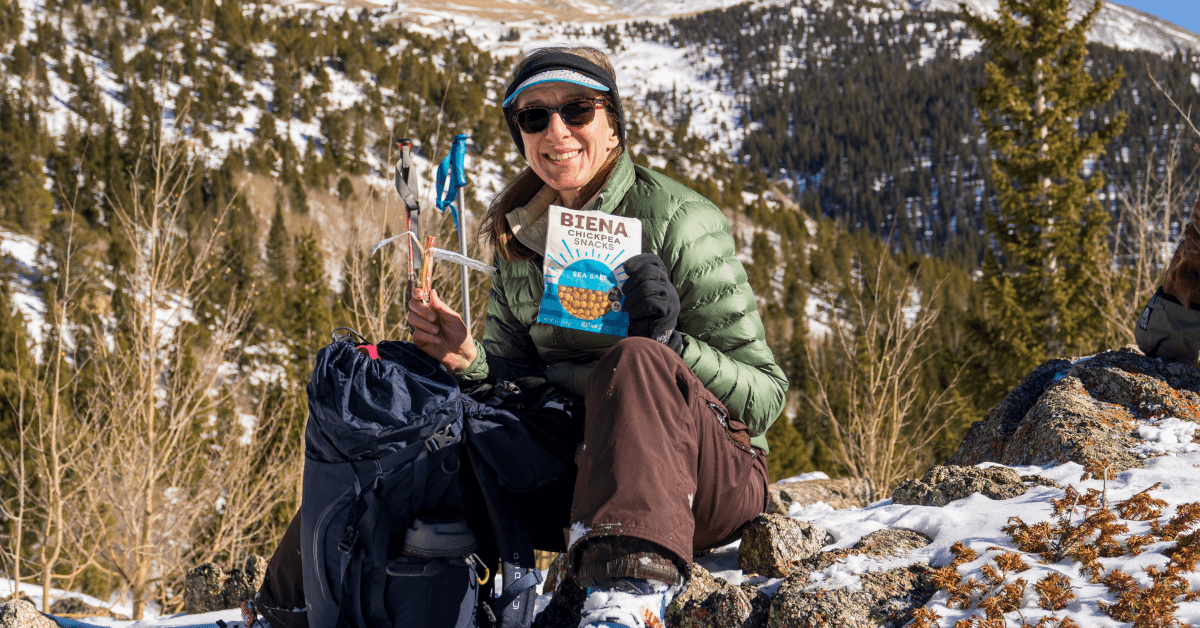Hiking and climbing tall mountains can be an exhilarating and rewarding experience, but it’s also a physically demanding activity that requires proper planning and preparation. One essential aspect of any hiking or climbing expedition is food. It’s crucial to bring enough food to keep your energy levels up, prevent fatigue, and maintain overall health.
In this article, we will explore the importance of food when hiking and climbing tall mountains, including the role of food in maintaining energy, hydration, and preventing altitude sickness.
We will also discuss the types of food that are best suited for hiking, and tips on how to properly plan and pack your meals for your next adventure. Whether you’re a seasoned hiker or a first-time climber, this article will provide valuable information to help you have a safe and successful expedition.
1. Energy
Eating before a hike is essential to ensure that you have enough energy to complete the hike. Complex carbohydrates, such as whole grains, fruits, and vegetables, will give you sustained energy throughout your hike. They break down slowly and provide a steady release of energy, allowing you to maintain a steady pace. Eating a high-energy meal or snack before your hike can help you avoid feeling fatigued or sluggish during your hike.
2. Proper Fuel
Eating a balanced meal before a hike is important to ensure that your body has the proper fuel it needs to function at its best. This includes protein to build and repair muscle tissue, carbohydrates for energy, and healthy fats for long-term energy. Adequate protein intake will help repair muscle tissue damaged during a hike, and healthy fats will give you energy over a longer period of time. A balanced meal will ensure that your body has all the nutrients it needs to perform optimally during your hike.
Related: Foods For High Altitude Mountain Climbers
3. Blood Sugar Regulation
A balanced meal before a hike can help regulate your blood sugar levels, which can prevent dips in energy and feelings of fatigue. When your blood sugar levels drop, you may feel weak, dizzy, or irritable. Eating a meal with a balance of carbohydrates, proteins, and fats can help slow the absorption of glucose into the bloodstream, maintaining a stable blood sugar level.
4. Mental Clarity
Eating a nutritious meal before a hike can help improve your focus and concentration, making your hike more enjoyable. Eating a well-balanced meal before a hike will provide your brain with the nutrients it needs to function properly. This can help you stay alert and focused during your hike, making it more enjoyable and safer.
5. Hydration
Eating a meal before a hike can also help you stay hydrated. Certain foods, like fruits and vegetables, contain a lot of water and can help you stay hydrated throughout your hike. Eating a meal that is high in water content can help keep you hydrated, making it easier to stay on the trail for longer periods of time. Also, it’s important to remember to drink water before and during the hike, as well as to eat hydrating foods.
What Are 3 Important Nutrients Needed On A Longer Hike?
One of the most important things to consider when planning your food for a hiking or climbing expedition is energy density. The body burns more calories at high altitudes than it does at lower elevations, so it’s essential to consume enough food to maintain energy levels and prevent fatigue. Carbohydrates are the most efficient source of energy for the body, and it’s important to include plenty of high-carb foods in your diet. Whole-grain bread, pasta, and cereal, as well as fruits and vegetables, are all good sources of carbohydrates.
Protein is also essential for maintaining energy levels and preventing fatigue. Protein is necessary for the repair and growth of muscle tissue, which is particularly important when climbing tall mountains. Good sources of protein include lean meats, dairy products, and nuts. It’s also important to include healthy fats in your diet, as they provide a slow release of energy and help to keep you feeling full for longer. Good sources of healthy fats include nuts, seeds, and avocados.
Hydration is another essential aspect of nutrition when hiking or climbing tall mountains. The body loses fluids through sweat and respiration, and it’s important to drink enough water to prevent dehydration. Additionally, it’s important to consume foods with high water content, such as fruits and vegetables, to help keep the body hydrated.
How Do You Pack Enough Food For Hiking?

It’s also important to consider the weight and volume of your food. When hiking or climbing tall mountains, it’s essential to pack light and minimize the amount of gear you need to carry. Foods that are lightweight, non-perishable, and easy to prepare are the best options. Some examples of lightweight, high-energy foods include energy bars, dried fruit, and nuts.
When packing your food for a hiking or climbing expedition, it’s also important to consider the cooking equipment that you’ll need. If you’re planning to cook your meals on the trail, it’s important to pack a lightweight, portable stove and the necessary fuel. Additionally, it’s important to pack lightweight, easy-to-clean cookware, such as a non-stick pot and pan.
Here is a rundown of tips that’ll help you pack smartly and have enough food to ensure a positive hiking experience.
- Plan ahead: Make a list of all the foods you need for your hike, including snacks, meals, and any special dietary requirements.
- Pack non-perishable items: These include trail mix, energy bars, jerky, and nuts. They are lightweight, easy to pack, and have a long shelf life.
- Use vacuum-sealed bags: These are great for packing perishable items like cheese, fruit, and sandwiches. They help to keep the food fresh for longer and also save space in your backpack.
- Pack a lightweight stove and fuel: This will allow you to cook your own meals on the trail, which can be more satisfying and nutritious than relying on pre-packaged meals.
- Don’t forget to bring enough water: You’ll need to drink plenty of water to stay hydrated on your hike, so make sure to bring enough water bottles or a hydration system.
- Consider a bear canister: If you’re hiking in an area where bears are common, you’ll need to store your food in a bear canister to keep bears and other wildlife from getting to it.
Best Foods To Help With Altitude Sickness While Hiking
Altitude sickness is a common problem when climbing tall mountains, and proper nutrition can help to prevent it. Altitude sickness occurs when the body is not able to acclimatize to the lower levels of oxygen at high altitudes. Symptoms include headache, nausea, and fatigue.
To prevent altitude sickness, it’s important to eat a diet that is high in carbohydrates and low in fat, as well as to drink plenty of water. Additionally, it’s important to avoid alcohol, as it can dehydrate the body and make symptoms of altitude sickness worse.
